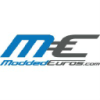Solidus
A free, open-source ecommerce platform that gives you complete control over your store.
- Visit our website: https://solidus.io/
- Read our Community Guidelines: https://solidus.io/community-guidelines/
- Read our guides: https://guides.solidus.io/developers/
- Join our Slack: http://slack.solidus.io/
- Solidus Security: mailing list
Table of Contents
- Supporting Solidus
- Summary
- Demo
- Getting Started
- Installation Options
- Performance
- Developing Solidus
- Contributing
Supporting Solidus
As a community-driven project, Solidus relies on funds and time donated by developers and stakeholders who use Solidus for their businesses. If you'd like to help Solidus keep growing, please consider:
Main Contributor & Director
At present, Nebulab is the main code contributor and director of Solidus, providing technical guidance and coordinating community efforts and activities.
Ambassadors
Support this project by becoming a Solidus Ambassador. Your logo will show up here with a link to your website. Become an Ambassador.
Summary
Solidus is a complete open source ecommerce solution built with Ruby on Rails. It is a fork of Spree.
See the Solidus class documentation and the Solidus Guides for information about the functionality that Solidus provides.
Solidus consists of several gems. When you require the solidus gem in your
Gemfile, Bundler will install all of the gems maintained in this repository:
solidus_api(RESTful API)solidus_frontend(Cart and storefront)solidus_backend(Admin area)solidus_core(Essential models, mailers, and classes)solidus_sample(Sample data)
All of the gems are designed to work together to provide a fully functional
ecommerce platform. However, you may only want to use the
solidus_core gem
combine it with your own custom frontend, admin interface, and API.
Demo
You can try the live Solidus demo here. The admin section can be accessed here.
You can also try out Solidus with one-click on Heroku:
Additionally, you can use Docker to run a demo on your local machine. Run the following command to download the image and run it at http://localhost:3000.
docker run --rm -it -p 3000:3000 solidusio/solidus-demo:latest
The admin interface can be accessed at
http://localhost:3000/admin/, the default
credentials are [email protected] and test123.
Getting started
Begin by making sure you have Imagemagick installed, which is required for Paperclip. (You can install it using Homebrew if you're on a Mac.)
To add Solidus, begin with a Rails 5.2, 6 or 6.1 application and a database configured and created.
Installing Solidus
In your application's root folder run:
bundle add solidus
bin/rails g solidus:installAnd follow the prompt's instructions.
Accessing Solidus Store
Start the Rails server with the command:
bin/rails sThe solidus_frontend storefront will be accessible at http://localhost:3000/
and the admin can be found at http://localhost:3000/admin/.
For information on how to customize your store, check out the customization guides.
Default Username/Password
As part of running the above installation steps, you will be asked to set an admin email/password combination. The default values are [email protected] and test123, respectively.
Questions?
The best way to ask questions is to join the Solidus Slack and join the #support channel.
Installation options
Instead of a stable build, if you want to use the bleeding edge version of Solidus, use this line:
gem 'solidus', github: 'solidusio/solidus'Note: The master branch is not guaranteed to ever be in a fully functioning state. It is too risky to use this branch in production.
By default, the installation generator (solidus:install) will run
migrations as well as adding seed and sample data. This can be disabled using
bin/rails g solidus:install --migrate=false --sample=false --seed=falseYou can always perform any of these steps later by using these commands.
bin/rails railties:install:migrations
bin/rails db:migrate
bin/rails db:seed
bin/rails spree_sample:loadThere are also options and rake tasks provided by solidus_auth_devise.
Performance
You may notice that your Solidus store runs slowly in development mode. This
can be because in development each CSS and JavaScript is loaded as a separate
include. This can be disabled by adding the following to
config/environments/development.rb.
config.assets.debug = falseTurbolinks
To gain some extra speed you may enable Turbolinks inside of Solidus admin.
Add gem 'turbolinks', '~> 5.0.0' into your Gemfile (if not already present)
and change vendor/assets/javascripts/spree/backend/all.js as follows:
//= require turbolinks
//
// ... current file content
//
//= require spree/backend/turbolinks-integration.jsCAUTION Please be aware that Turbolinks can break extensions and/or customizations to the Solidus admin. Use at your own risk.
Developing Solidus
-
Clone the Git repo
git clone git://github.com/solidusio/solidus.git cd solidus
Without Docker
-
Install the gem dependencies
bin/setup
Note: If you're using PostgreSQL or MySQL, you'll need to install those gems through the DB environment variable.
# PostgreSQL export DB=postgresql bin/setup # MySQL export DB=mysql bin/setup
With Docker
docker-compose up -dWait for all the gems to be installed (progress can be checked through docker-compose logs -f app).
You can provide the ruby version you want your image to use:
docker-compose build --build-arg RUBY_VERSION=2.6 app
docker-compose up -dThe rails version can be customized at runtime through RAILS_VERSION environment variable:
RAILS_VERSION='~> 5.0' docker-compose up -dRunning tests:
# sqlite
docker-compose exec app bin/rspec
# postgres
docker-compose exec app env DB=postgres bin/rspec
# mysql
docker-compose exec app env DB=mysql bin/rspecAccessing the databases:
# sqlite
docker-compose exec app sqlite3 /path/to/db
# postgres
docker-compose exec app env PGPASSWORD=password psql -U root -h postgres
# mysql
docker-compose exec app mysql -u root -h mysql -ppasswordIn order to be able to access the sandbox application, just make
sure to provide the appropriate --binding option to rails server. By
default, port 3000 is exposed, but you can change it through SANDBOX_PORT
environment variable:
SANDBOX_PORT=4000 docker-compose up -d
docker-compose exec app bin/sandbox
docker-compose exec app bin/rails server --binding 0.0.0.0 --port 4000Sandbox
Solidus is meant to be run within the context of Rails application. You can easily create a sandbox application inside of your cloned source directory for testing purposes.
This sandbox includes solidus_auth_devise and generates with seed and sample data already loaded.
-
Create the sandbox application
bin/sandbox
You can create a sandbox with PostgreSQL or MySQL by setting the DB environment variable.
# PostgreSQL export DB=postgresql bin/sandbox # MySQL export DB=mysql bin/sandbox
If you need to create a Rails 5.2 application for your sandbox, for example if you are still using Ruby 2.4 which is not supported by Rails 6, you can use the
RAILS_VERSIONenvironment variable.export RAILS_VERSION='~> 5.2.0' bin/setup bin/sandbox
-
Start the server (
bin/railswill forward any argument to the sandbox)bin/rails server
Tests
Solidus uses RSpec for tests. Refer to its documentation for more information about the testing library.
CircleCI
We use CircleCI to run the tests for Solidus as well as all incoming pull requests. All pull requests must pass to be merged.
You can see the build statuses at https://circleci.com/gh/solidusio/solidus.
Run all tests
ChromeDriver is required to run the frontend and backend test suites.
To execute all of the test specs, run the bin/build script at the root of the Solidus project:
createuser --superuser --echo postgres # only the first time
bin/buildThe bin/build script runs using PostgreSQL by default, but it can be overridden by setting the DB environment variable to DB=sqlite or DB=mysql. For example:
env DB=mysql bin/buildIf the command fails with MySQL related errors you can try creating a user with this command:
# Creates a user with the same name as the current user and no restrictions.
mysql --user="root" --execute="CREATE USER '$USER'@'localhost'; GRANT ALL PRIVILEGES ON * . * TO '$USER'@'localhost';"Run an individual test suite
Each gem contains its own series of tests. To run the tests for the core project:
cd core
bundle exec rspecBy default, rspec runs the tests for SQLite 3. If you would like to run specs
against another database you may specify the database in the command:
env DB=postgresql bundle exec rspecCode coverage reports
If you want to run the SimpleCov code coverage report:
COVERAGE=true bundle exec rspecExtensions
In addition to core functionality provided in Solidus, there are a number of ways to add features to your store that are not (or not yet) part of the core project.
A list can be found at extensions.solidus.io.
If you want to write an extension for Solidus, you can use the solidus_dev_support gem.
Contributing
Solidus is an open source project and we encourage contributions. Please read CONTRIBUTING.md before contributing.







